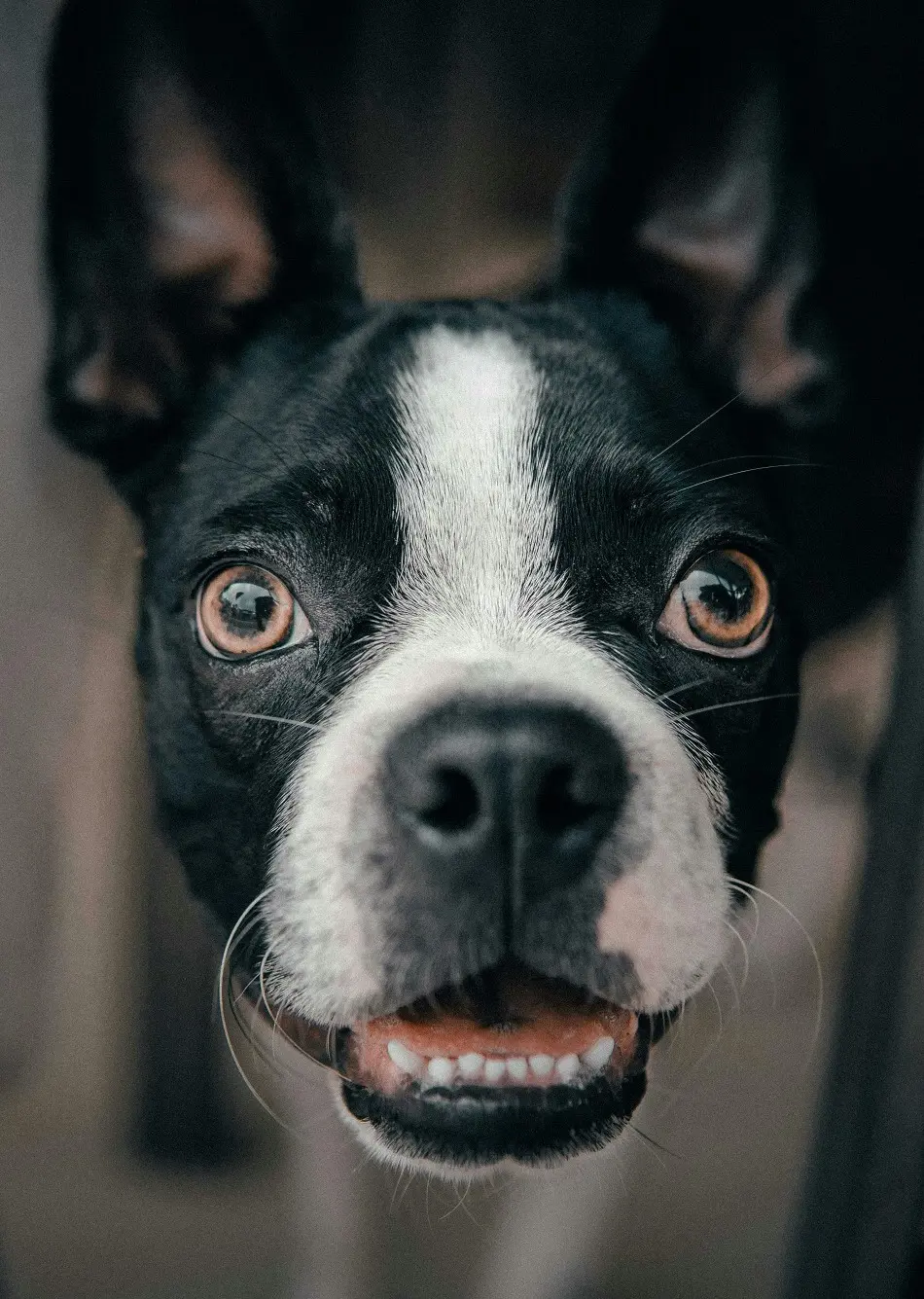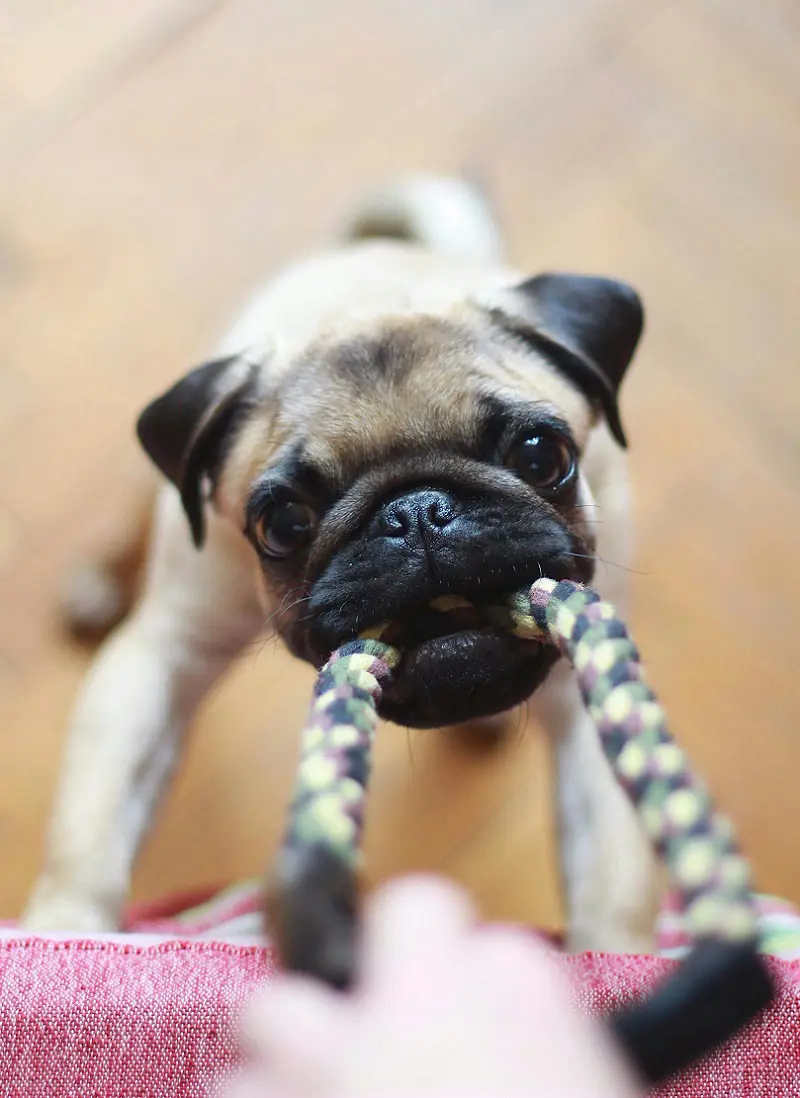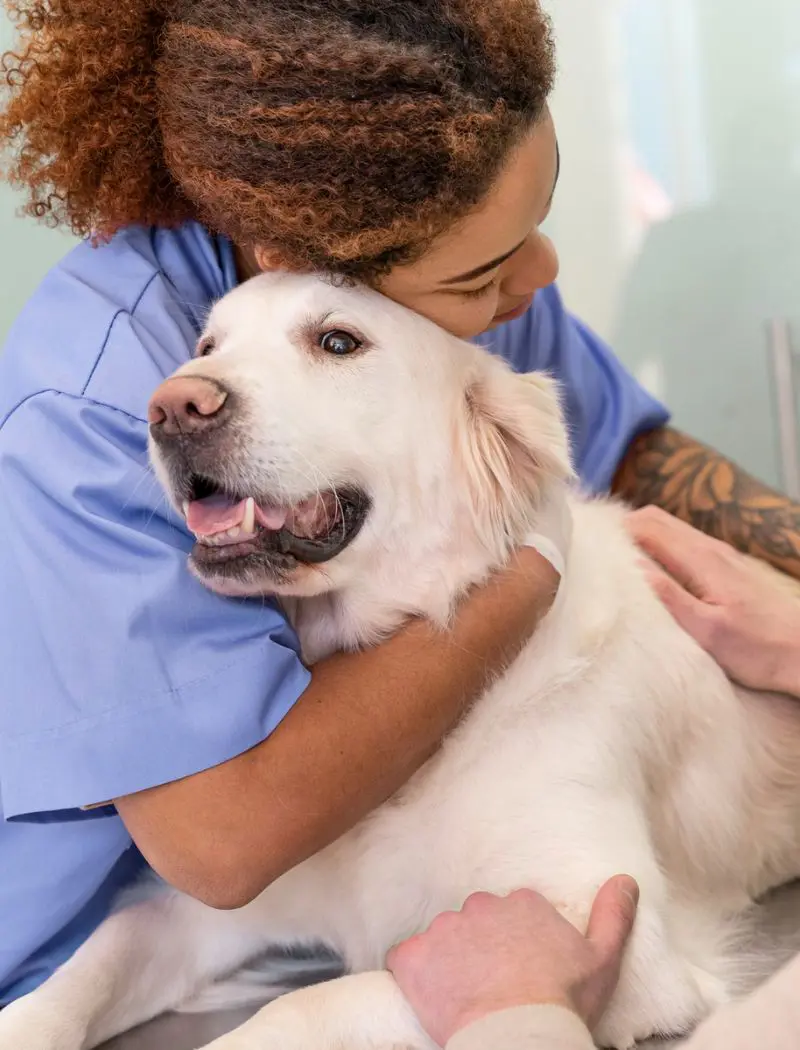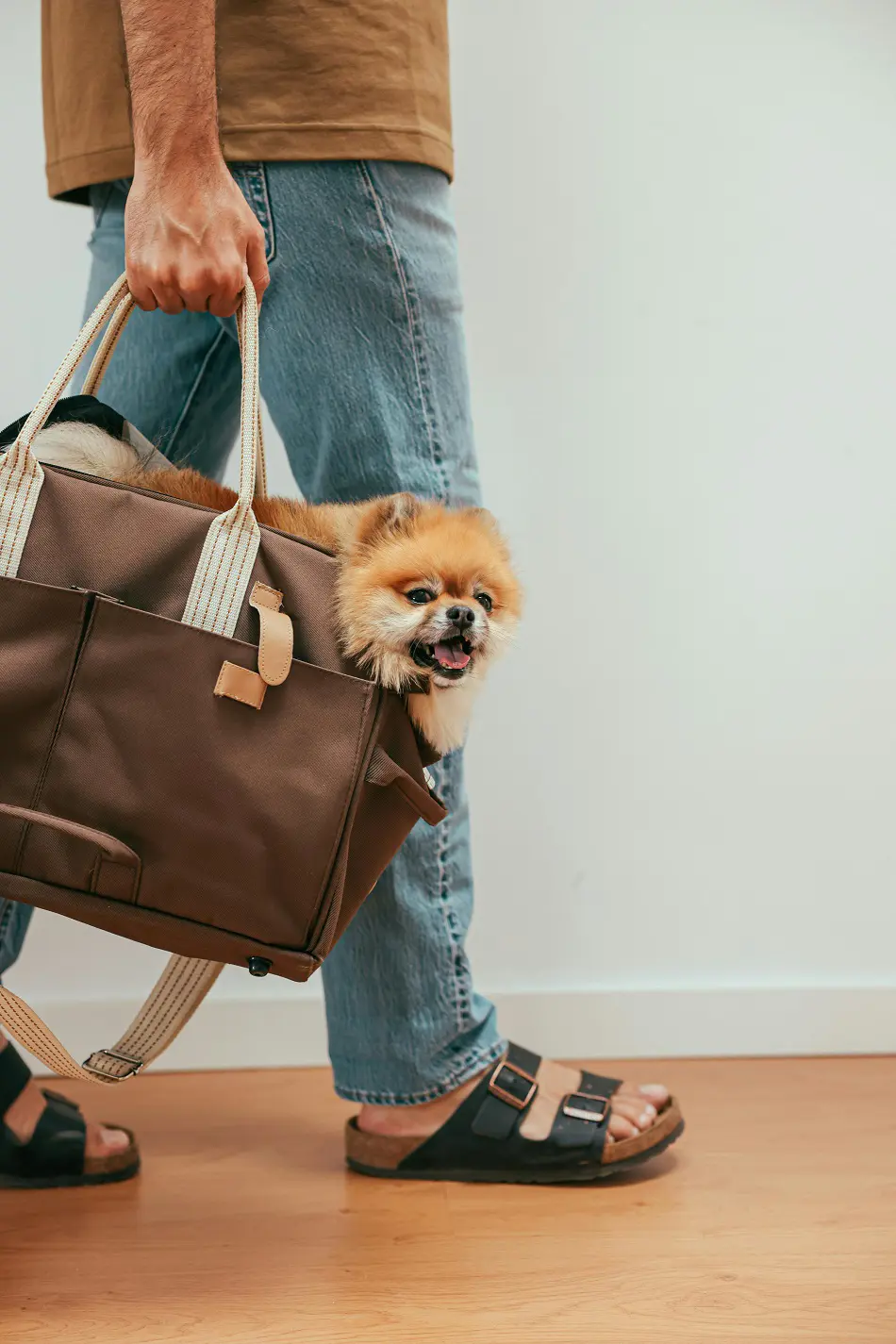Puggle Dog Breed Personality Information

Known to be the lovely breed of a Beagle and a Pug, the Puggle inherits all sweet traits from the two breeds combined, the creation of hybrid dogs is very famous for their lively nature and loving ways making them great for companion purposes, either for a family or an individual.
With that wrinkled forehead, big expressive eyes, and a slightly curled tail, the Puggle has that endearing look that complements its playful and loving nature. Small to medium in size, this breed of dog appears full of energy and can complement your family if you're the active type.
Overview
The Puggle is bred from the energetic nature of the Beagle, plus the charming looks of the Pug, together in one small, loving, and full-of-life breed, compact with a friendly disposition, the Puggle is an excellent companion dog that does equally well in active and passive environments and they adjust to city apartments and suburban homes alike.
- Lifespan: 10-15 years
- Weight: 7-14 kg
- Height: 25-38 cm
- Colors: Fawn, black, tan, or combination
- Size: Small to medium
- Personality: Friendly, affectionate, energetic, curious
History and Origin Of Puggle Dog Breed

The Puggle is a rather new breed, dating back to the 1980s in America and it was supposed to be a crossing between the best of the Beagle and the Pug with this in mind, what they came up with was a dog full of play and affection but bearing that endearing, wrinkled face of a Pug.
With its good looks and jolly temperament to boot, this breed was fast in gaining popularity and became the pet of many families and single owners, this major kennel club does not consider the Puggle as a purebred dog, but distinctly combined characteristics from both parents made the breed dear to dog lovers.
The Puggle has gracefully turned through the years from a breed meant for family members much loved for their spirited and playful nature, together with the ease by which they adapt to domestic life.
Characteristics and Rating
The Puggle is a social, affectionate, and very attentive breed that loves interacting with its family they are attached to their owners and will always prefer companionship, it can be said that they make the best pets for families or for owners who are willing to give their pets all time needed in this regard. They may get bored if left alone for too long and indulge in destructive behavior due to mental and physical needs.
They do very well with children and active families, but their Beagle heritage gave them a high scent drive, they could be easily distracted when outside. An exercised Puggle is a happy and healthy one, though by nature walkers, will do activities like walking, running, or even agility training.
| Alertness | 4 |
| Tolerates Being Alone | 3 |
| Playfulness | 4 |
| Grooming Needs | 3 |
| Shedding | 3 |
| Exercise Needs | 4 |
| Energy Level | 4 |
| Affection | 5 |
| Likes Other Pets | 4 |
| Easy to Train | 3 |
| Family Friendly | 5 |
Personality Traits
They are the perfect bundle of charisma and affection, always ready to take their part in whatever is happening within their family curious, playful, making good companions, and great fun to be with while full of energy. Puggles are nice and friendly and several truly tender and loving attitudes toward families have been indicated to them. They are very social creatures and they love companionship and interaction, so they will suit any family or individual who loves spending time with their pets.
Bright and Curious
Nature appears rather curious and they seem to get so interested in their surroundings, that they can easily pick up new commands, and even new tricks their inquisitive nature makes them engrossed in detailing their surroundings. But along with such intelligence comes an equally strong need for mental stimulation without it, the Puggle is going to get bored and sometimes even develop unwarranted behavior, it follows that a regular dose of training sessions, puzzle toys, and interactive activities is called for to keep them sharp and bright.
Adaptable

Doing well in most forms of homes, from a city apartment to some quiet suburban homes and this is because they are small to medium-sized and fit quite nicely into some lifestyles so long as they get exercise and adequate mental stimulation. They would play games with the family, go with them for walks, or simply sit down to spend some quality time with the family and their ability to adjust to so many things and their love for their families makes them very nice companions for all sorts of families.
Shedding
Even though they have a short, smooth coat that sheds moderately throughout the year, they are not on the list of heavy-shedding breeds so frequent brushing will keep them in good health. This low amount of loose hair floating around the house will make dog allergy sufferers a lot more aware of their grooming and cleaning to keep their allergens at bay so compared to other dogs they have short hair and is very easy to clean even if they shed.
Health
The Puggles are, in general, healthy animals, but with any other hybrid dog breed, some health issues could be passed from the parent breeds and some of the normal conditions include hip dysplasia, patellar luxation, and respiratory problems, most of which go back to the Pug side. Keeping tabs on vet checkups, regular dieting, and maintaining a healthy weight is quite important for your Puggle's fitness and health. Provided with the best care and attention, the Puggle will be a lifelong companion to all his favorites.
Nutrition and Dietary Needs Of Puggle Dog
Imagine a pet that will be playful, full of life, and energy, yet above all, affectionate and a companion always ready for the next adventure. Their eyes light up and they sparkle with curiosity, and one can't help but feel infected with the same urge and are an individually uniquely charming personification of warmth and enthusiasm in every single moment one gets to spend with them.
Balanced Diet: A good nutritional intake will help keep them energized it can be either commercial or homemade, a complete and well-balanced diet is, therefore, necessary for your dog so notice the life stages like puppy, adult, or senior, and be sure that the food applies to that life stage. While a good diet will keep them on their toes with energy, it will also contribute to long life and happiness generally.
Proteins for Strength: Crucial in the overall development of muscles, they help in their overall growth, along with boosting immunity and since puggles are full of energy and always curious, a good intake of food rich in protein will help to sustain energy throughout the day and monitor their intake toward getting the right kind of nutrients so that they can be agile, healthy, and risk-free from muscular loss or weakness with age.
Balanced Fats for Energy: They are added because balanced fats have a bearing on their health and lively energy, and are factors in improving brain function, and in reducing inflammation, these playful dogs do need some regulated fat to move around in play and their intake should be very controlled to avoid obesity. If well managed, they will be in perfect physical shape to give themselves a good deal of fun and playful moments without compromising their health.
Fiber and Carbohydrates for Sustained Energy: They not only provide energy but also regulate the amount of sugar in blood with their fiber content and they regulate these rapid glucose changes, which are more likely to affect the mood and energy by providing them with continuous energy throughout a dog's day. Add some carbs so be it sweet potatoes, brown rice, or oats to come up with stamina for great health in terms of overall digestion. It is that delicate balance in intake of fiber and carbohydrates that keeps them going, running, fit, and fine.
Feeding Schedules

A proper feeding schedule will go a long way in keeping your Puggle hale and hearty and shall essentially help build up an even metabolism with a controlled feeding schedule, avoid overeating, and keep your pet trimmed.
Puggle puppies do have the most extended growth and energy requirement and therefore should be fed 3-4 small meals a day and as they grow, gradually reduce the number of meals until they reach adulthood, that is, around one year old when feeding twice a day is ideal for the management of weight and sustenance of energy levels. This goes in line with the need to watch the intake of their food and make sure it is in portions relating to the proportion of activity and weight.
As your Puggle grows older, so do their changing needs in terms of nutrition, they require fewer calories but a well-balanced intake nonetheless, you should provide a senior dog formula that gives them what they need without added calories and be sure to have regular checkups to monitor his/her health, through which you can make necessary changes in your dog's diet.
Health And Weight
A lot of illnesses are linked with obesity so he needs to have a good amount of exercise and his diet should be well-managed, you must talk with your doctor to agree on the right form of diet and a program of exercise that will be most suitable with your dog's size, age, and level of activity.
Watching Their Weight
Regular weighing is essential to make sure that any change gets noted down and diet and exercise are adjusted accordingly weigh your Puggle once a month record the measurement and compare it with the ideal weight range continuously. You should especially be more careful of their weight because Puggles are known to overeat when they have any opportunity according to many owners of them around the world.
Portion Control
Proper portion control will prevent overfeeding and maintain a healthy weight follow the feeding guidelines on your dog's food packaging, adjust portions according to activity levels and body condition, and avoid free-feeding, as this is known to be a potent inducer of overeating and attendant weight increase. You should only give them the quantity of food that they should be eating and no more, letting them be free and choose the amount of food they want to eat will be devasting to their health because they have no control over their eating.
Exercise and Activity
A significant part of weight management and general health in Puggles is the need for daily exercise, activities to keep him active, stimulated, and less bored may include simple walking, playing interactive games, or just some general playtime. Such regular exercise prevents destructive behaviors and keeps your Puggle healthy and happy, the exercise not only makes your dog have a healthy motor function, bones, and muscles but also helps them live a long life because dogs are social creature and they are naturally required to exercise more than other animals, they thrive and glow if they can run, walk and be free.
Pros And Cons

Pros
- Friendly and Social: They are very friendly and social, making them a great companion for any family or person and they are known to be people-oriented and grow close to the owner in no time.
- Adaptable: Puggles can adapt to all sorts of living situations, be it a city apartment or a house in the suburbs, and with its moderate size and temperament, it is quite amenable to households of different dimensions.
- Low grooming needs: Puggles with low, courtesy of their short coat require quite low maintenance, especially for those on the run and more often than not, regular brushing will keep them in order, with an occasional bath to make them as good as new.
Cons
- Pluckishness: Sometimes the Puggles can get very obstinate, and this mood often rules out the possibility of training, a steady and patient training methods should be enlisted to transcend this disposition and ensure that they develop good manners.
- Overeating: Basically, most Puggles have a great liking for food, which normally results in overeating and this will in consequence lead them to add weight and later health complications, this calls for monitoring of their diet and provision for regular exercise to keep them healthy.
- Health Problems: Being of mixed heritage, Puggles can fall prey to health problems, from an owner's point of view, respiratory problems and dysplasia of the hips are probable risks and the occurrence of such risks can be avoided by regular veterinary care and a balanced diet.
Top Lists






